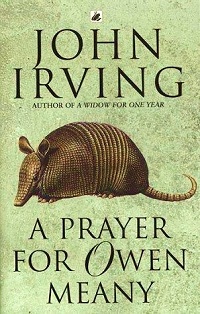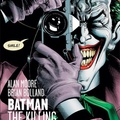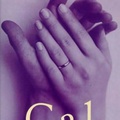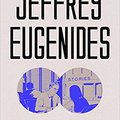John Irving: A Prayer for Owen Meany
 The narrator of the novel is Johnny Wheelwright, a reclusive American teacher who’s been living in Canada for a long time. He looks back from the end of the 1980s to the American suburbs where he used to live as a teenager and as a young man in the 50s and 60s, and he recollects his memories of his friendship with Owen Meany, the protagonist of the story, a little, critically minded boy with an unbearably shrieking voice and infinite (superstitious) belief who liked to think of himself as the finger of God. Johnny and Owen grew up together, played together, went to the same school and in general, stuck to each other in all circumstances. But this is not an average friendship, Johnny and Owen are bound together more tightly: for instance, by the fact that Owen killed Johnny’s mother as a child, when he accidentally hit her with a baseball; or by the fact that it’s thanks to Owen’s perfect plan that Johnny didn’t have to go to the Vietnam war.
The narrator of the novel is Johnny Wheelwright, a reclusive American teacher who’s been living in Canada for a long time. He looks back from the end of the 1980s to the American suburbs where he used to live as a teenager and as a young man in the 50s and 60s, and he recollects his memories of his friendship with Owen Meany, the protagonist of the story, a little, critically minded boy with an unbearably shrieking voice and infinite (superstitious) belief who liked to think of himself as the finger of God. Johnny and Owen grew up together, played together, went to the same school and in general, stuck to each other in all circumstances. But this is not an average friendship, Johnny and Owen are bound together more tightly: for instance, by the fact that Owen killed Johnny’s mother as a child, when he accidentally hit her with a baseball; or by the fact that it’s thanks to Owen’s perfect plan that Johnny didn’t have to go to the Vietnam war.
But the novel is more than the chronicle of an unusual friendship. Besides this, Irving depicts the life of (suburban) America in the 1950s and 1960s wonderfully, and he writes about all the hot topics of the era: about the way TV culture permeated the country; about the general enthusiasm surrounding certain politicians (such as John F. Kennedy) and the inevitable disappointment which followed when it turned out that the public figures whom people greeted as saviours are in fact only human, with human faults and vices; about the Vietnam war and the way the nation reacted to it; or about the conflicts between different denominations and the questions of (religious) belief in general.
All these „big” topics, however, don’t overburden the story, since Irving is a natural-born storyteller with a wonderful sense of humor: he can write about even the most serious themes in such a manner that I don’t feel suffocated by his books, and – simply – it’s a pleasure to be „inside” his novels. And this novel makes it clear that Irving can be very ironic, too. The characters of the novel often mention one of Thomas Hardy’s observation, which is to the effect that initial promises are always broken, and what you get instead is something you didn’t expect at all. Well, A Prayer for Owen Meany can be considered an ironic (and very lengthy) illustration of this point.
Irving kindles your curiosity right at the beginning of the novel with a couple of mysteries: What was that UNSPEAKABLE OUTRAGE the Catholic Church committed against Owen Meany’s family which caused Owen to convert to the Episcopal Church? Who is the father of Johnny whose identity has been carefully concealed by his mother all through her life? What did Owen see on one of the prop gravestones during the performance of the Dickens’ Christmas Carol during the ominous Christmas season of 1953?
These questions keep recurring in the novel, and since the protagonist himself is a manic believer in omens, the reader also starts to look out for signs of all kinds, and keeps hoping that sooner or later all these mysterious questions will be resolved. And resolved they are – but by the time you get to the end, the secrets and mysteries lose their alluring power, or at least it turns out that the banality of the solutions is hardly proportionate with the tension Irving built up in the first couple of hundred pages by his constant references and his careful and tricky use of good and bad signs.
But perhaps this is what a modern (American) epic novel is like: it abounds in self-sacrificing heroes willing to go to extremes; serious problems; life-changing, irrevocable decisions and marvelous deeds – but then it may turn out that there’s a simple solution to all these difficult problems, or that the hero’s sacrifice isn’t what it seems to be and perhaps it’s absolutely pointless. So if you’re looking for a truly heroic novel, then this book may be somewhat disappointing, but if you read it from an ironic distance, you are probably going to like it. (I’m sorry that I happened to read it in a less-than-ironic mood.)





